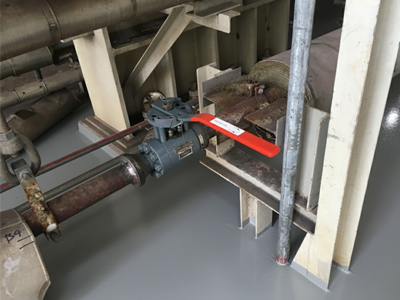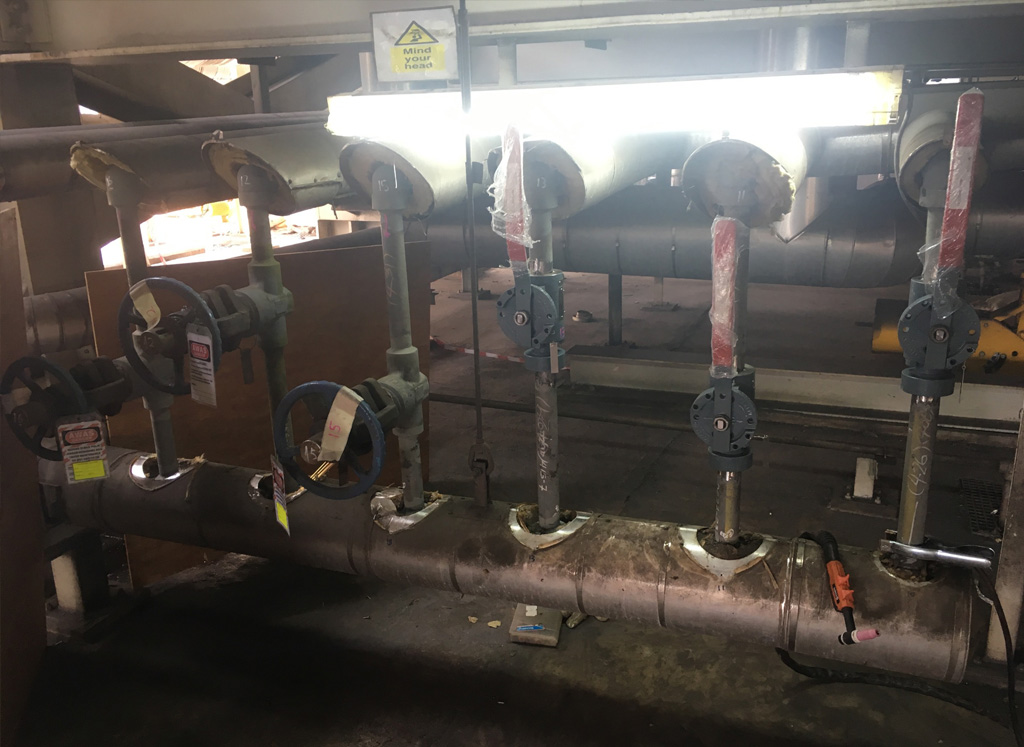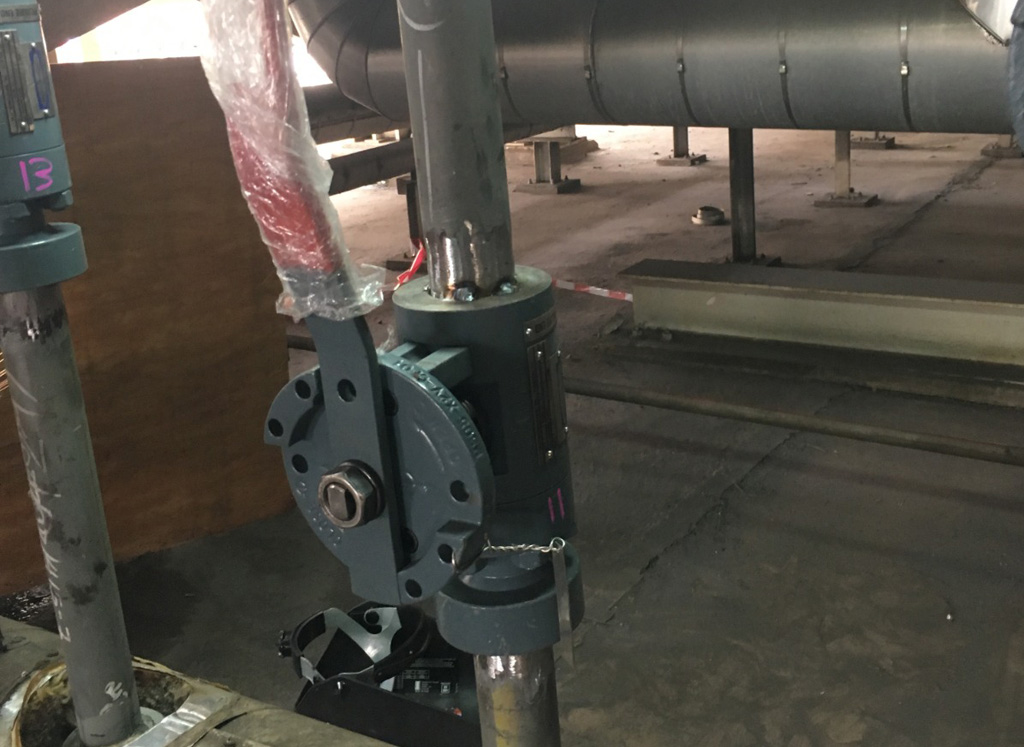Power plants are the backbone of Malaysia’s energy system, operating behind the scenes ensuring that homes remain lit, businesses stay productive, and essential public services continue to function.
As the nation’s demand for electricity rises, these facilities must operate at optimal efficiency and reliability, minimizing disruptions while supporting Malaysia’s transition to a more sustainable energy future.
Inside every plant is a system with a process that transform different energy sources - whether it is hydro, natural gas or renewable energy - being converted into electricity that powers daily life.
In thermal plants, for example, water is heated to produce high-pressure steam, which spins turbines and drives generators that feed into the national grid.
This process relies on countless components, each playing a critical role. Among the most important are steam valves, which regulate the flow and pressure of steam within turbines.
As is the case with any machinery, these valves are subjected to extreme temperatures and pressure which can become prone to wear and tear. Even with regular maintenance, these items can deteriorate over time, with leaks and other issues developing.
Every Drop Counts, Efficiency with Purpose
With the right oversight and continuous improvements, power plants can operate at peak efficiency - ensuring that every drop of water and every unit of fuel is used purposefully to generate the electricity we depend on.
Even the smallest components, such as steam valves, play a vital role in this process. When well-maintained, they help plants run smoothly, reducing resource consumption, optimizing performance, and keeping operating costs under control.
Efficient operations will lead to lower water and fuel consumptions, which translates into a reduced carbon footprint and a lighter impact on the climate.
At Tenaga Nasional Berhad (TNB), we have the responsibility to address potential and actual steam leaks not just for maximum operational efficiency but to also make sure that it doesn’t use unnecessary amounts of natural resources.
Water is a precious resource, and making sure that it is used with care and purpose is in line with the company’s broader environmental, social and governance (ESG) goals.

Innovative Valve and Piping Upgrades
To demonstrate how proactive maintenance can unlock greater efficiency, TNB’s power plants - the Prai Power Plant in Penang’s Seberang Prai region and the Southern Power Generation (SPG) Plant in Johor’s Pasir Gudang, have undertaken various initiatives, including system upgrades and performance-enhancing measures.
In line with TNB’s ongoing commitment to enhance operational efficiency and conserve natural resources, the Prai Power Plant launched an initiative to reduce high feed water consumption by minimizing steam leaks within its Heat Recovery Steam Generators (HRSG). Assessments revealed that due to severe plant operations, the original installed drain valves were prone to leakage, resulting in excessive demineralised water usage and lower overall block efficiency.
To address this, the plant replaced the leaking HRSG drain valves with zero leakage valves technology - a proven and innovative solution designed to eliminate steam and water loss. This upgrade not only resolved a long-standing technical challenge but also underscored the plant’s proactive approach toward sustainable operations and responsible resource management.
A zero-leakage valve is an advanced type of industrial valve engineered to completely prevent fluid or steam from escaping, even under high pressure or temperature. Unlike conventional valves that may allow small but continuous leaks over time, these valves use precision engineering and enhanced sealing technology to achieve a perfect shutoff.
Beyond efficiency, zero-leakage valves are also designed for ease of maintenance - their internal components can be serviced or repaired during planned or unplanned maintenance without replacing the entire valve. This not only extends their lifespan but also makes them a more durable, cost-effective, and practical solution for long-term operations.
The impact of this initiative has been significant: demineralised water output dropped from 26 m³ per hour to just 11 m³ per hour, a reduction of nearly 58%. This demonstrates how innovation which represents new generation of efficiency-focused solutions can deliver measurable environmental and operational gains.
A similar upgrade was introduced at the SPG plant, delivering impressive results. Water consumption dropped from over 60 m³ per hour in April 2024 to just 16 m³ per hour by August 2025 - a 73% reduction, all while maintaining the same level of power output.
During the series of maintenance outages, the teams also identified leaks in the high pressure drain piping. Samples were sent for lab analysis, which confirmed that the failures were caused by high-temperature wear and degradation over time. To address this, the original piping was replaced with the material which offers superior resistance to high temperatures and extends the service life of the high pressure drain system.
During the series of maintenance outages, the teams also identified leaks in the high pressure drain piping. Samples were sent for lab analysis, which confirmed that the failures were caused by high-temperature wear and degradation over time. To address this, the original piping was replaced with the material which offers superior resistance to high temperatures and extends the service life of the high pressure drain system.



Small Fixes, Big Gains
Examples from the Prai and Southern Power Generation plants show how small technical improvements can lead to major operational and environmental benefits.
By installing zero-leakage valves, upgrading piping, and optimising other critical components, these plants were able to maintain the same energy output while using fewer resources. This shows that even seemingly small improvements, when carefully implemented, can make a meaningful difference - sometimes outweighing additional costs.
These solutions highlight that innovation, maintenance, and sustainability can work hand in hand. Achieving net zero does not always require massive infrastructure projects; sometimes, the key lies in addressing small inefficiencies that collectively create a big impact, allowing TNB to power the nation responsibly and efficiently.